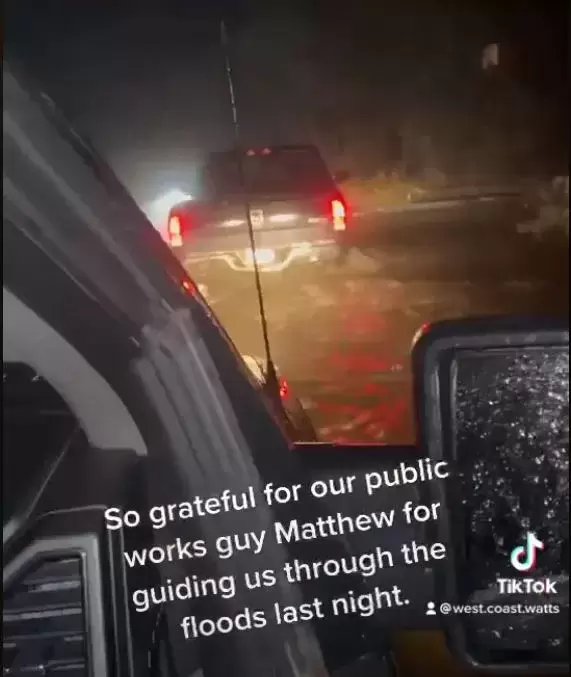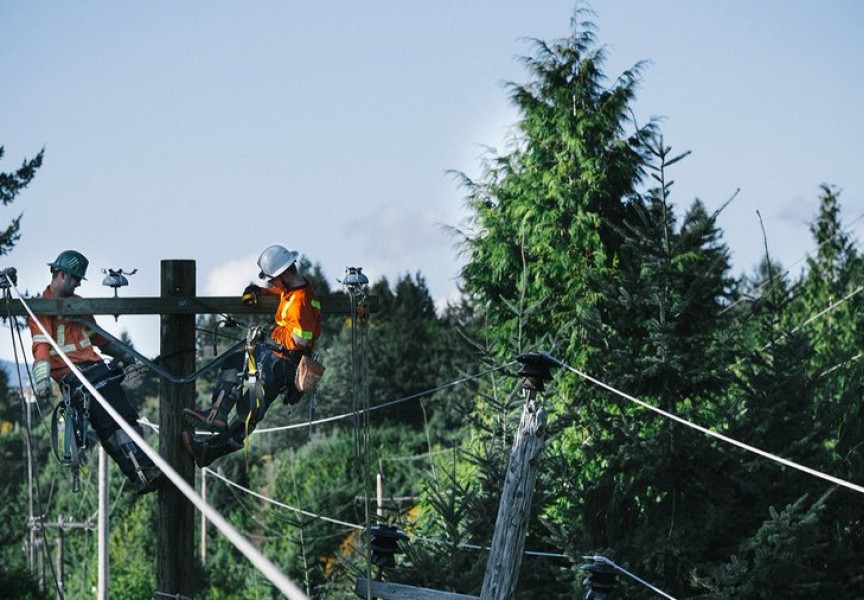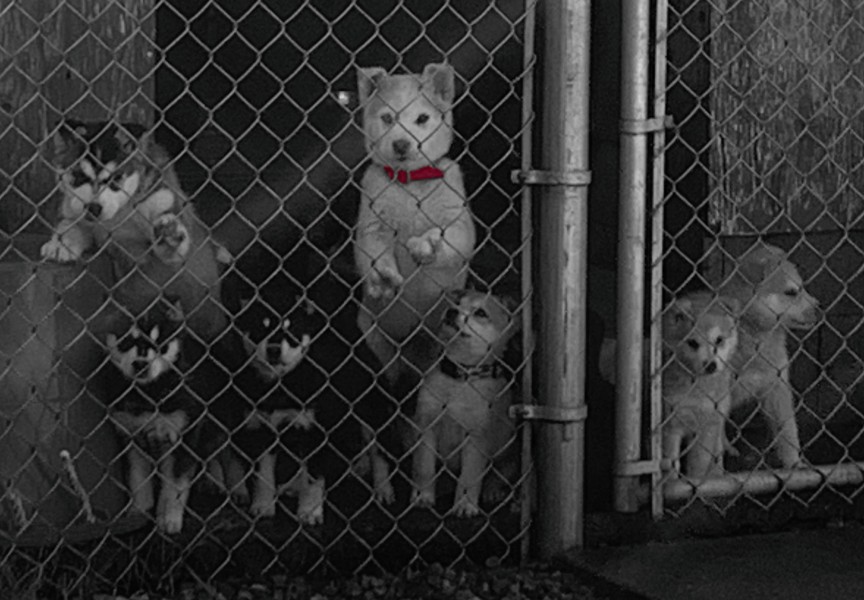It isn’t the first time, and it certainly won’t be the last, but residents of Nitinaht Lake face flooded road access to their community more often thanks to heavy snowfall and a trio of atmospheric weather events so far this winter.
Nitinaht resident and mother of four, Crystal Watts, came home on the evening of Jan. 11 to find the road leading into the community flooded. Just after midnight on Jan. 12 she posted a video of her frightening ride through the flooded section of road.
Terrified, Watts, was grateful that Matthew Edgar of the Ditidaht First Nation’s public works department came through the flooded road to guide people back to the village.
“When I went through that flood, I was trying not to panic and stress,” Watts told Ha-Shilth-Sa. “I was so grateful Matthew helped guide me and my daughter through and encouraged me that we can do it.”
“I could have probably reached that water with my hands from my window,” Watts, who drives a pick-up truck, recalled.
She thanks Edgar for his help.
“I appreciate Matthew for always being there to make sure our community members are cared for,” she added.
Elected Chief Brian Tate says the floods have since subsided, but they know that, come the next rainstorm, it will flood again.
There is a back access road to the village, but locals say it is not always open. Sometimes the forestry company locks the gates or downed trees block the road.
The lack of reliable access worries Watts.
“It’s scary knowing that we have elders and people who are high risk living here in our community. What if something were to happen when we have zero access in and out?” she asked.
Watts says she is a single mother of four children, and some have asthma.
“Now with COVID, that’s even more scary and urgent more than ever to be able to access medical services,” she added.
The storms not only bring flooding, but also prolonged power failures due to the community’s remote location.
“We need that road not only for medical services, but we need it for food,” said Watts.
It is becoming increasingly common for locals to be stranded for days without electricity or access in and out of the village.
“Many of our members lose a lot of our traditional foods we have stocked away in our freezers,” said Watts, adding that it is hard to live at home. “You have to really love home and what you do for your people to endure the living conditions that we have here.”
Watts is happy to work for her people, but she says it would be so much better if their road could be improved for the safety and well-being of her people.
Watts points out that her words are not meant to criticize the Ditidaht First Nation’s chief and council – she is aware that road safety has been an issue for years and that the elected members have been working to find solutions. She worries that something terrible may happen before government finally takes action.
She recalls the 2019 bus accident in which 45 University of Victoria students and staff rolled down an embankment on their way to Bamfield, in which two students lost their lives.
“That wasn’t the first time that road has taken a life,” Watts noted.
“If it’s one of us, nobody cares…we need people to care now and to care for everyone. Not wait for a non-member to get hurt before the government sees how dangerous our road access is,” Watts stated. “We need to be able to have access for emergency services to make it our way.”
Chief Brian Tate told Ha-Shilth-Sa that his nation is working on a solution.
“The roads are being graded, but (have) not reached our community yet,” he told Ha-Shilth-Sa. “As for possible upgrades, there are plans to create a side road that goes around the flooded area.”
Watts said more than half a dozen local vehicles needed to be guided through the flooded section of road just outside of the village on the weekend of Jan. 12. It was impossible for smaller cars to get through until the flood waters subsided.
“When I had to go through that flood to get back home to my children, I was terrified and wanted to cry,” Watts remembered. “As soon as I got home, I ran to my mom who lives next door, gave her a big hug and cried. I was that scared.”







